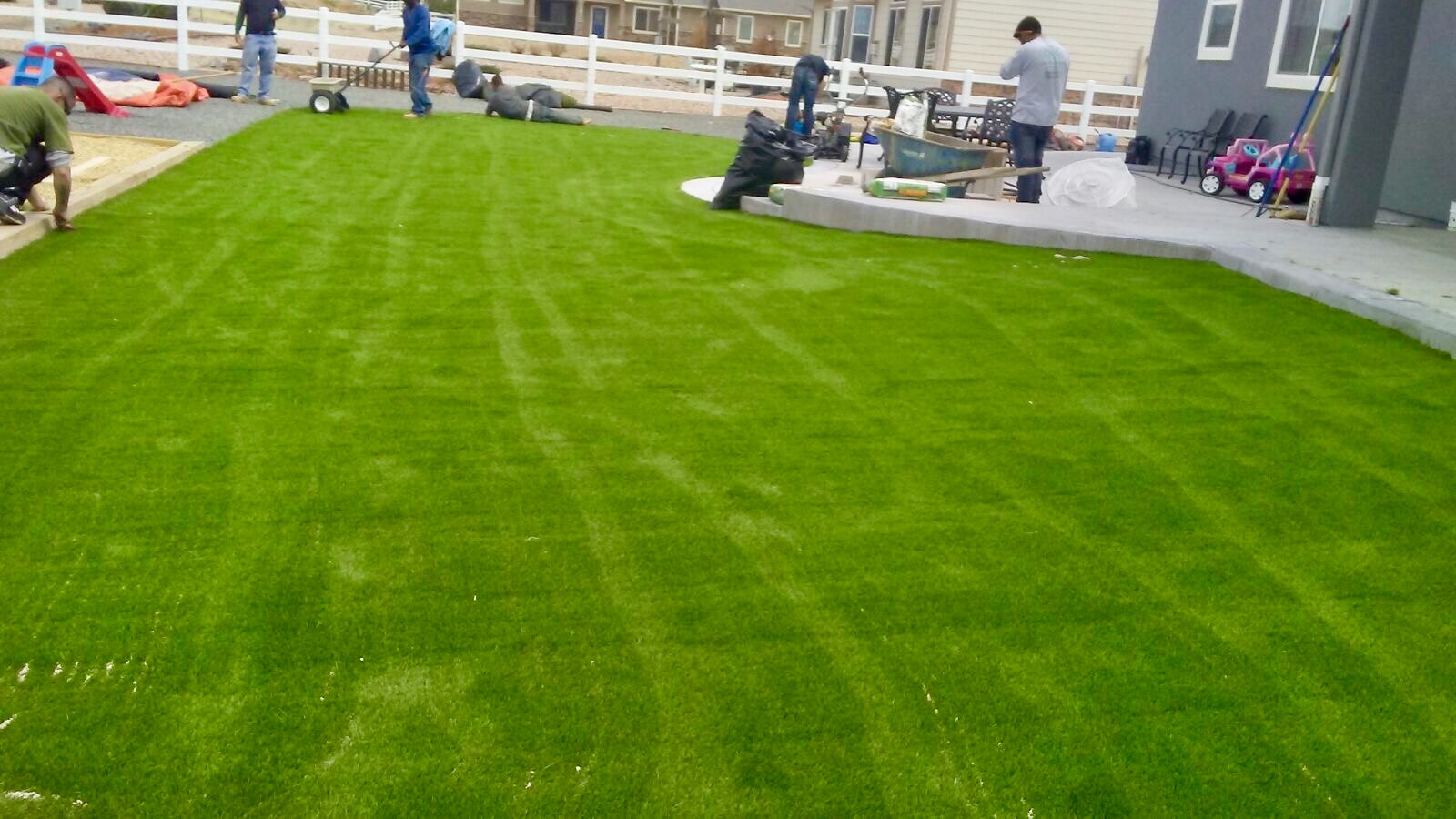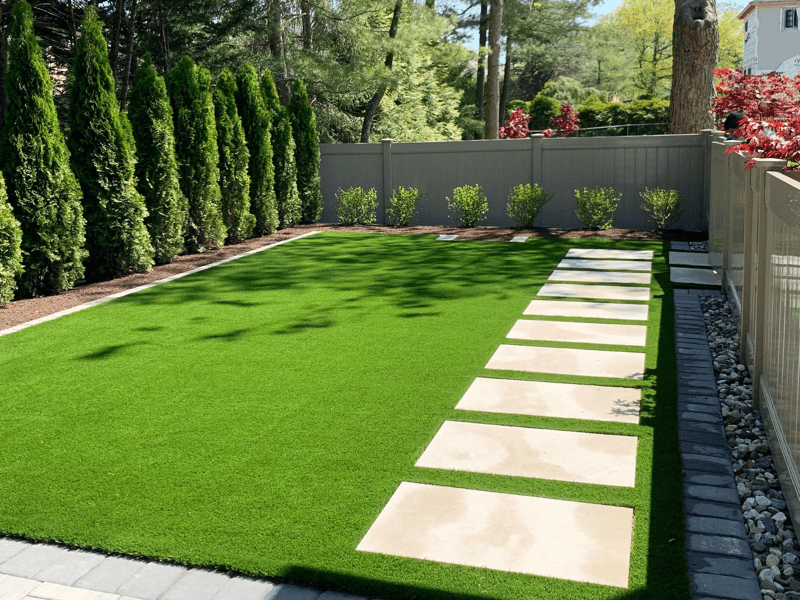Leading Phoenix Turf Companies Offering Superior Synthetic Lawn Products
Leading Phoenix Turf Companies Offering Superior Synthetic Lawn Products
Blog Article
Explore the Environmental Perks of Opting for Artificial Lawn Solutions
The adoption of artificial lawn services provides an engaging chance to address pushing ecological obstacles. By substantially reducing water usage and lessening the application of hazardous chemicals, these choices not only promote sustainable landscape design yet also safeguard neighborhood ecosystems.
Water Conservation Perks
One of the most significant benefits of man-made lawn is its capacity to save water. In contrast, synthetic lawn does not require watering, substantially decreasing the total demand for water sources.
By getting rid of the need for routine watering, synthetic grass contributes to lasting landscape techniques and assists mitigate the environmental influence of excessive water usage. The preservation of water extends to the decrease of runoff, which can lead to soil erosion and river pollution.
Furthermore, the installment of synthetic grass allows municipalities and house owners to allot water sources more efficiently, concentrating on necessary usages such as alcohol consumption water and farming. The change towards synthetic grass not just promotes responsible water use yet likewise straightens with more comprehensive ecological objectives targeted at protecting natural deposits.
As communities significantly focus on sustainability, the water preservation benefits of synthetic lawn present an engaging instance for its adoption in residential and commercial landscape design tasks.
Lowered Chemical Use
The shift to synthetic grass significantly lowers the reliance on chemical treatments generally utilized in all-natural lawn upkeep. Standard turf administration normally entails the application of fertilizers, chemicals, and herbicides to promote development and control bugs. These chemicals can pose dangers to human health and wellness, regional wildlife, and the setting, adding to dirt and water contamination.
On the other hand, synthetic grass eliminates the demand for these harmful materials. Once mounted, it requires very little upkeep, largely including normal cleaning and occasional infill replenishment. This reduction in chemical use not just benefits the immediate setting but additionally adds to wider ecological security. By lessening the launch of synthetic compounds into the ecological community, synthetic lawn promotes much healthier soil and water systems.
In addition, the absence of chemical drainage linked with artificial grass setups aids shield local waterways from contamination, supporting water life and maintaining biodiversity. Arizona artificial turf. As areas significantly focus on sustainable practices, going with man-made grass presents a practical option that lines up with environmental preservation goals. Through this shift, residential or commercial property proprietors can take pleasure in rich green areas without endangering eco-friendly health and wellness, paving the method for an extra sustainable future
Lower Carbon Impact

Moreover, the installation of synthetic grass can result in significant water conservation. All-natural grass require significant amounts of water for irrigation, which not only contributes to the carbon impact connected with water extraction and treatment however likewise strains regional water resources. On the other hand, artificial grass requires marginal upkeep, requiring no watering, thus dramatically try these out reducing water use and its connected energy costs.
In addition, the longevity of man-made lawn adds to its lower carbon impact. With a lifespan of up to 15 years or more, the requirement for constant substitutes is lessened, causing less waste and lower energy consumption in production and taking care of standard lawn options. Generally, man-made lawn provides a sustainable choice for environmentally mindful landscaping.
Habitat Preservation
Environment preservation is a vital consideration in the dispute over landscape design selections, specifically when contrasting man-made turf to natural grass. All-natural lawn lawns usually call for considerable maintenance, including using chemicals, herbicides, and fertilizers, which can detrimentally influence neighborhood communities. These chemicals can seep into the soil and waterways, damaging native vegetation and fauna and disrupting neighborhood habitats.
Artificial turf eliminates the requirement for hazardous chemicals, therefore safeguarding neighboring wildlife and maintaining the honesty of surrounding ecosystems. The installation of fabricated lawn can lead to the conversion of former like it lawn locations right into even more biodiverse landscapes, such as pollinator gardens or native plant areas, which can support local wild animals.
Ultimately, the transition to artificial turf not only saves water and lowers maintenance initiatives but additionally promotes a much more harmonious relationship between human tasks and the all-natural setting, advertising habitat preservation while doing so.
Long-Term Sustainability
Lasting sustainability is a critical consider assessing the advantages of man-made grass over conventional turf lawns. One of one of the most considerable advantages of synthetic grass is its toughness; it can last approximately 15-20 years with marginal upkeep, whereas all-natural grass requires constant reseeding and replacement. This longevity reduces the need for continuous resources, such as water, plant foods, and pesticides, which are important for maintaining a healthy and balanced yard yard.
In addition, fabricated grass adds to a decrease in carbon discharges related to grass care devices. Conventional yards typically require gas-powered lawn mowers, trimmers, and blowers, every one of which add to air pollution. Arizona turf. In comparison, synthetic grass removes the requirement for such equipment, advertising a cleaner environment
Furthermore, the production of fabricated lawn significantly makes use of recycled products, boosting its sustainability account. As suppliers adopt green techniques, the environmental anchor impact of synthetic grass continues to diminish.

Conclusion
The adoption of synthetic grass solutions presents significant ecological benefits, including substantial water preservation, reduced dependence on hazardous chemicals, and a reduced carbon impact. Man-made turf help in preserving natural environments by minimizing land disruption and promoting lasting sustainability with the use of long lasting products. Collectively, these factors underscore the possibility of synthetic grass to contribute favorably to ecological wellness and offer a practical choice to traditional landscaping practices in a progressively resource-conscious globe.
In comparison, synthetic grass does not need watering, substantially minimizing the overall demand for water sources. By decreasing the launch of artificial compounds into the community, synthetic grass advertises much healthier dirt and water systems.
Furthermore, the installation of man-made grass can result in considerable water preservation. In comparison, artificial turf needs marginal maintenance, requiring no watering, consequently dramatically decreasing water usage and its linked power expenses.

Report this page